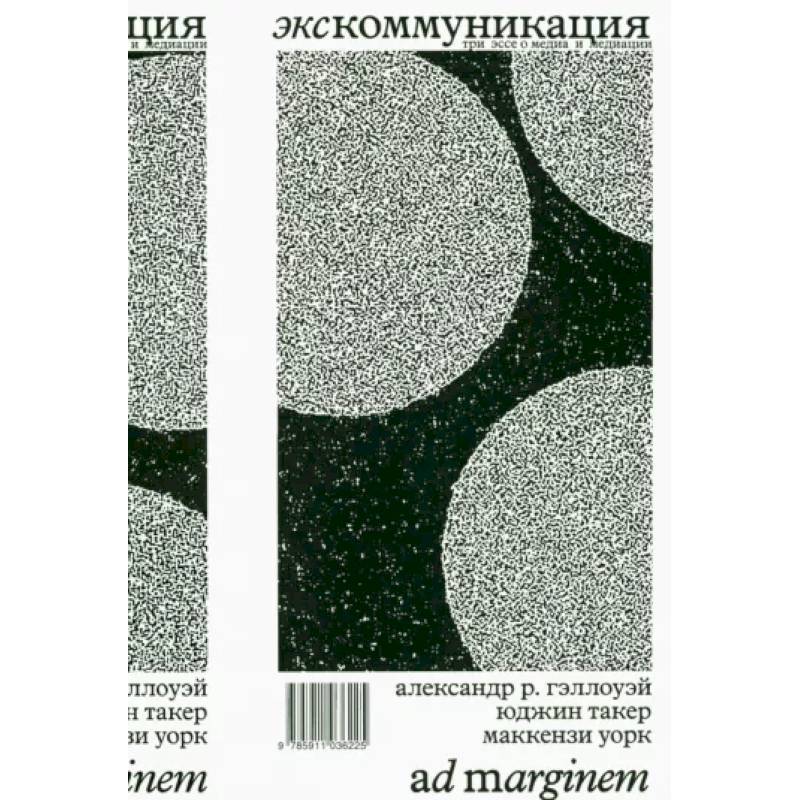Excommunication. Three essays on media and mediation
Please sign in so that we can notify you about a reply
Always in touch - such is the imperative of modern media. But what happens when the media stop working properly? When the messages go beyond the strict framework “from the sender to the recipient”, go beyond the scope of the world of communication as such, messages that proclaim: “There are no more messages”? In this book, Alexander R. Galloway, Eugene Tucker and Mackenzie Warck turn over our usual ideas about media and mediation, the authors explore the impossibility of communication, inextricable from its very essence - the impossibility that they call “exemplary”.
Galloway, Tucker and Warck are sorting out this difficult topic in three interconnected essays. The authors study mediation in the future of the expulsion, ban and naming of heresy - and also reflect on the possibilities of communication outside this world. Galloway puts forward the original theory of mediation, which is rooted in philosophy and classical literature. Here, the figures of Hermes, Irida and Furies personify the three main mediation modes to date: mediation as an exchange, as an insight and as a network. Tucker goes far beyond the classification of Galloway: he explores the concept of exemplating through the non -obvious connection of the modern genre of Horror and medieval mysticism - from Howard Lovecraft to Mayster Eckhart. Tucker is interested in cases of communication with incomprehensible, he calls such mediation regimes “obsessed” and “otherworldly”, emphasizing their mysterious inaccuracy. Warck adopts the poetry of an angry swarm, it is also the quire-policy of the heresy, which does not fit into the framework of the theory of media, or the framework of traditional left discourse. The author puts forward a critical theory that offers a new look at the concept of heresy - and this look is very different from the one that is usually attributed to the Apostle Paul
Galloway, Tucker and Warck are sorting out this difficult topic in three interconnected essays. The authors study mediation in the future of the expulsion, ban and naming of heresy - and also reflect on the possibilities of communication outside this world. Galloway puts forward the original theory of mediation, which is rooted in philosophy and classical literature. Here, the figures of Hermes, Irida and Furies personify the three main mediation modes to date: mediation as an exchange, as an insight and as a network. Tucker goes far beyond the classification of Galloway: he explores the concept of exemplating through the non -obvious connection of the modern genre of Horror and medieval mysticism - from Howard Lovecraft to Mayster Eckhart. Tucker is interested in cases of communication with incomprehensible, he calls such mediation regimes “obsessed” and “otherworldly”, emphasizing their mysterious inaccuracy. Warck adopts the poetry of an angry swarm, it is also the quire-policy of the heresy, which does not fit into the framework of the theory of media, or the framework of traditional left discourse. The author puts forward a critical theory that offers a new look at the concept of heresy - and this look is very different from the one that is usually attributed to the Apostle Paul
Author:
Author:Уорк Маккензи, Гэллоу Александр Р., Такер Юджин
Cover:
Cover:Soft
Category:
- Category:Biographies & Memoirs
- Category:Religion & Spiritually
- Category:Magazines & Encyclopedia
Publication language:
Publication Language:Russian
Paper:
Paper:Offset
ISBN:
ISBN:978-5-91103-622-5
No reviews found
